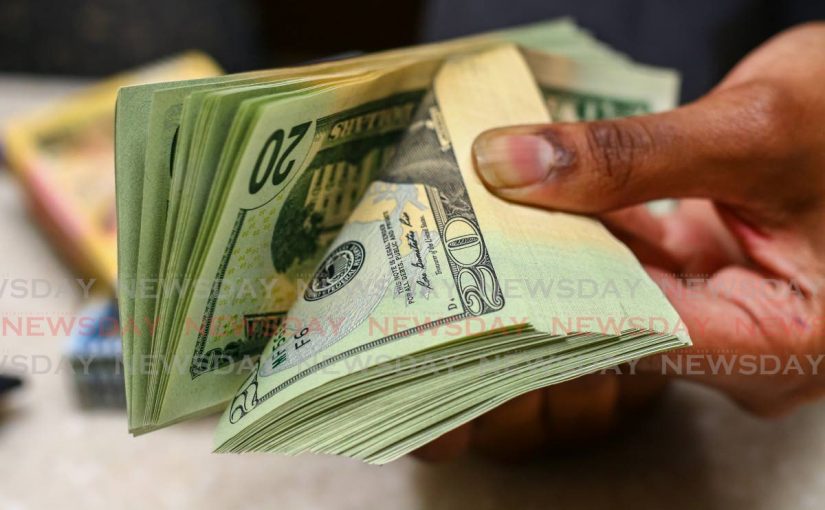THE US State Department is proposing a requirement for applicants for business and tourist visas to post a bond of up to $15,000 to enter the...
Vous n'êtes pas connecté
Rubriques :
 - NEWSDAY.CO.TT - A la Une - 22/Jul 06:54
- NEWSDAY.CO.TT - A la Une - 22/Jul 06:54
The forex misdiagnosis
THE EDITOR: I have seen a false narrative gaining popularity in social media once more – that the forex problem could have been solved with the refinery remaining open. The uninformed on social media can be excused, but I get worried when I hear ministers repeating the incorrect assertion, as I heard recently. Firstly, the forex shortage issue began long before the refinery was closed. As far back as 2014, businesses and citizens were complaining about forex shortages. I came across an IMF report on TT dated June 3, 2014, which stated, “Despite sizeable reserves, foreign exchange shortages, which impose unnecessary economic costs, have recurred.” The issue is a more structural one based on demand for forex, which has continued to increase, and supply of it, which is dependent on energy prices and production. Both prices and production have declined and remained at low levels since 2014. In looking at the refinery’s ability to earn foreign exchange, most people only look at its sale of products like gasoline, diesel and fuel oil, which earned roughly US$350 million per year. However, what many don’t consider is that the refinery actually imported around 100,000 barrels of oil per day to refine, which ran up approximately US$650 million in short-term loans at the Ministry of Finance annually, according to government statements. This meant that not only was the refinery losing over $2 billion per year, but it was also a forex drain amounting to over US$300 million per year and running up US dollar debt in the process. I took the time to present this in the context of the decision to re-examine the restarting of the refinery. While I see this being touted as possibly the fix to the forex problem, this same equation would hold and need to be solved, if this refinery would be of any benefit to our foreign exchange situation. Unless this is fixed, the roughly US$1.3 billion per year the Central Bank injects into our system would increase dramatically and further drain our already depleted reserves. If the government is convinced that the refinery would fix the forex problem, I am saying to it, look at the supply side because we are simply not earning enough of it. And while I have heard its lofty solutions, to diversify and increase exports, this will remain a fantasy in a five- to seven-year time period. The forex issue is not an allocation problem either, so breaking up any perceived cartel will not only fail to solve the issue, but may actually worsen it. I recall in 2014 when the then Central Bank governor tinkered with the distribution system, it created the shortage the IMF referenced. Now it has become more structural and unless this is addressed, no refinery or reallocation will solve our forex problem. RAJIV HEMANT via e-mail The post The forex misdiagnosis appeared first on Trinidad and Tobago Newsday.
Articles similaires
Stakeholders meet at tourism forum in Tobago
President of the Tobago Hotel and Tourism Association (THTA) Reginald MacLean is calling for the repeal of the foreign investment Tobago Land...
Stakeholders meet at tourism forum in Tobago
President of the Tobago Hotel and Tourism Association (THTA) Reginald MacLean is calling for the repeal of the foreign investment Tobago Land...
Head, meet desk: here's the real reason Americans vote for Trump
I am going to start today, by actually giving the America-attacking Trump credit for something: He understands far better than any politician in...
Head, meet desk: here's the real reason Americans vote for Trump
I am going to start today, by actually giving the America-attacking Trump credit for something: He understands far better than any politician in...
Socio-economic conditions that triggered attempted coup still persist 35 years later
DESPITE the release of five books, at least three documentaries and a commission of enquiry, academics and political commentators contend that many...
Socio-economic conditions that triggered attempted coup still persist 35 years later
DESPITE the release of five books, at least three documentaries and a commission of enquiry, academics and political commentators contend that many...
Freedom In A Post-Covid World – OpEd
The Covid era cut through traditional ideological paradigms like knives on tissue. Nothing behaved as we might have expected. The civil libertarians...
Digicel’s Innovation Challenge reveals need for greater inclusion for People with Disabilities
THE launch of Digicel’s Innovation Challenge for People with Disabilities (PWDs) revealed how much work is still needed for greater inclusion of...
Growing African connections
FOR the past 23 years, the Trans-Atlantic Trade and Investment Symposium has championed the conversation of creating and expanding trade linkages...
Les derniers communiqués
-
Aucun élément






